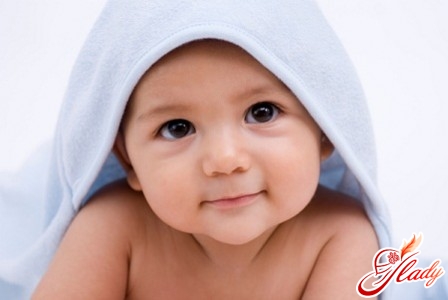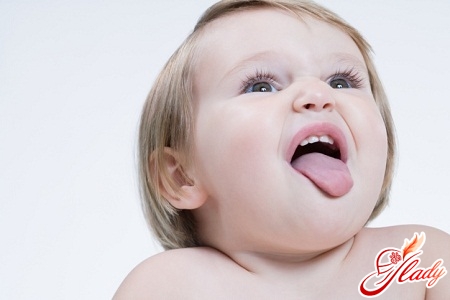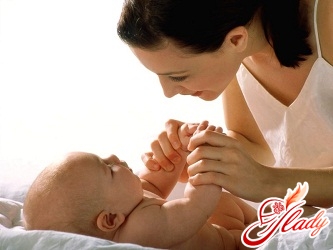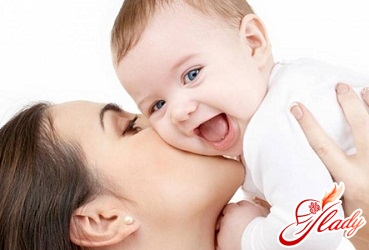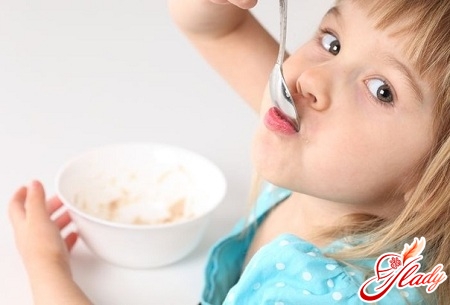 Food allergies in children, treatment of whichshould start as early as possible, is quite a serious problem. And, unfortunately, this phenomenon is very, very widespread. Therefore, it is important to identify as quickly as possible which products cause allergies in the child, because it is the adjustment of the diet that makes up the lion's share of the entire treatment process. Although, of course, certain specific treatment also takes place. If parents notice the allergy in time and take the necessary measures, the chances of a full recovery of the child are very high. But if the problem is ignored, it will grow, like a snowball flying down a mountainside.
Food allergies in children, treatment of whichshould start as early as possible, is quite a serious problem. And, unfortunately, this phenomenon is very, very widespread. Therefore, it is important to identify as quickly as possible which products cause allergies in the child, because it is the adjustment of the diet that makes up the lion's share of the entire treatment process. Although, of course, certain specific treatment also takes place. If parents notice the allergy in time and take the necessary measures, the chances of a full recovery of the child are very high. But if the problem is ignored, it will grow, like a snowball flying down a mountainside.
What kind of animal is this - an allergy?
First, let's go over this in detail.what is a food allergy. Doctors use this term to describe an excessively high sensitivity of the immune system to certain components contained in certain foods. And an allergy develops because immunoglobulin E, a protein of the immune system, enters into a direct chemical reaction with a certain allergen. An allergy manifests itself in a very, very specific way: its symptoms are easily recognizable even if the parents do not have a medical education. But, of course, you need to see a doctor as soon as possible. So, the main symptoms are:
By the way, remember that most oftenthe predisposition to developing food allergies is transmitted at the genetic level. Therefore, if parents or other close relatives have any allergic diseases, they should know that their child automatically falls into the high-risk group. Of course, this does not mean that such a baby will necessarily develop a food allergy. However, the child's body is constantly in a state of increased "combat" readiness. And parents should pay special attention to the child's diet, starting from the very first days of his birth. And consult a doctor immediately if even the most mild symptoms of allergy appear.
Causes for the development of allergies
As a rule, children who are prone to foodallergies, it makes itself known already in the first months of life. The main symptoms in such babies are skin rashes and itching. Doctors identify several main reasons that can provoke the development of allergic reactions: Improper diet of the expectant mother The health of the child is significantly affected by the diet of his mother during pregnancy. Citrus fruits and strawberries should be excluded from the menu of a pregnant woman. And also strictly limit the consumption of fish and seafood. In the last months, a woman should also refuse whole cow's milk - it is much wiser to replace it with fermented milk products. Early introduction of artificial mixtures into the child's diet Often the "trigger" for the onset of allergic reactions is the early introduction of artificial mixtures. And even if breastfeeding continues. This is explained simply - the vast majority of milk formulas are made on the basis of cow's milk protein. And this very protein is the strongest allergen, which in most cases leads to the development of allergies. That is why doctors never tire of reminding us that it is necessary to try to maintain breastfeeding for as long as possible. This will significantly protect your child not only during infancy, but also throughout his or her entire life. If this is impossible for some reason, give preference to hypoallergenic formulas based on either soy protein or goat milk protein. Incorrect diet of a nursing woman A nursing mother must very, very strictly monitor her diet. Of course, all nursing mothers, without exception, remember that there are strict restrictions on food products. But sometimes you really want something forbidden! Many young mothers are unable to resist temptation and make certain dietary mistakes. And sometimes these mistakes can be very serious. That is why the treatment of food allergies in children under one year old consists, first of all, in correcting the diet of the nursing mother. Violation of the rules for introducing complementary foods Very often, the first time a food allergy makes itself known is when the first complementary foods are introduced into the baby's diet. This can happen due to the untimely introduction of a particular type of complementary food, the introduction of several types of food at once, or too much complementary food eaten by the child at one time. Therefore, it is very important to ensure that all recommendations of the pediatrician regarding this issue are followed.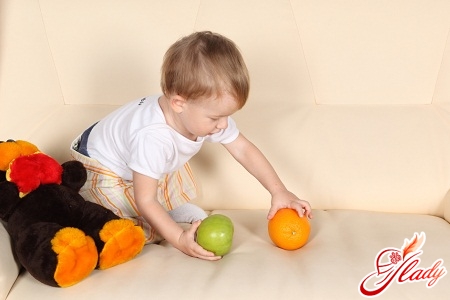
What foods most often cause allergies?
For the treatment of food allergies primarilyit is necessary to exclude from the child's diet all products that can provoke the development of a reaction. It is very difficult to say for sure which product can cause an allergy in a small child. Therefore, let's start the conversation with children under one year old - the most allergenic are:
- Proteins cow milk, and in any form and in any products.
- Proteins of chicken and quail eggs. Yolk can also cause allergies, but less often.
- Practically any kind of fish, especially marine. Up to a year, it is strictly contraindicated.
- Gluten, which is contained in the proteins of rye, wheat and rice and oats.
- All fruits, vegetables and berries are bright yellow and red.
Introduce no more than one new food into your diet.product once every two weeks. This way, you will be able to determine exactly which component is causing the food allergy. And therefore, it will be very easy to exclude it. And remember the simple rule: introduce new products in very small quantities. And in the case of older children, things are a little more complicated. To all the above-mentioned food products, a whole range of additional ones are added, since the child's diet is significantly expanded. These include:
- All kinds of nuts, even a small number of them.
- Shrimp, squid, oysters and other kinds of seafood.
- Strawberries, kiwi, plums and citrus fruits.
- Various food additives, preservatives, dyes and emulsifiers.
These products are generally the most dangerous forchildren from one to four years old. This is explained by the fact that over several years the child's immune system acquires the necessary skill to recognize provoking proteins. And the body's reaction to them is no longer as violent as before. However, do not delude yourself: exacerbations of food allergies will occur less and less often, but there is a very high probability that the child's immune system will switch to other allergens - household dust, plant pollen, etc.
Diagnosis of food allergy
Food allergies are like any otherdisease, requires proper diagnosis. And this diagnosis is not so simple - a whole range of actions is required. The first thing the doctor will do is analyze all the existing risk factors: diet, the child's diet, hereditary predisposition. This information is extremely important for the correct diagnosis, so parents should give the doctor the maximum amount of data. Parents should keep a so-called food diary for a certain period of time - usually two weeks. It is necessary to carefully and meticulously record all the food products that their child eats. And the child's body's reaction to a particular product should also be recorded in detail in this food diary. At the same time, laboratory tests are carried out. Today, immunological tests of the blood of a sick child are considered the most reliable. To determine the level of specific immunoglobulin in the blood serum, a laboratory technician will take blood from a vein from the child. Many parents are afraid of this, but in vain - the procedure takes a very short time and does not cause much discomfort to the baby. If a laboratory test shows an excessive amount, it is highly likely that the child has a food allergy. A blood test is also very important, as it allows identifying specific food allergens that cause a pathological reaction in the body. As a rule, with the help of this test, doctors manage to identify most common allergens. However, it happens that the analysis does not show all allergens, so it is still necessary to be careful when introducing new products. Skin tests are often used for children over five years old, which also allow identifying food allergens. Using a special needle, shallow scratches are made on the skin of the child's forearm, onto which water with allergens dissolved in it is applied. After 10 minutes, the result is assessed - if the scratch is inflamed and reddened, then the child is highly likely to have a food allergy to this allergen.
Kindergarten: to be or not to be?
Very often in front of parents whose childrendemonstrate a food allergic reaction, the problem of visiting a kindergarten arises. In order to avoid having to pick up the baby in the evening with spots on the cheeks, remember to follow some safety rules: List of prohibited products Often, parents verbally warn teachers about an existing allergy, but often teachers simply forget about it. Therefore, keep this issue under your strict control. Submit an application to the nurse with a complete list of all the products to which the child is allergic. Moreover, list absolutely everything, because even if the child is allergic to some products rarely found in kindergarten, for example, citrus fruits, there is no guarantee that your baby will not be treated to some other child. Menu in kindergarten When bringing your child to kindergarten, carefully study the menu. In the event that you know that the kindergarten will have some dish that is unsuitable for your child, bring something from home. Surely the teachers will not refuse to warm up the child's food in a timely manner.
Diet for the treatment of food allergies
As has been said above many times, the main thingTreatment of food allergies is a timely and correct correction of the child's diet. This must be done as quickly as possible. And it is very important to do it really correctly. Therefore, it is much wiser to seek help from an allergist or, if there is none, then from a pediatrician. For very young children, the doctor will help select therapeutic mixtures that will exclude the possibility of re-development of food allergies, and the introduction of the first complementary foods to such babies should be carried out under the strict supervision of a doctor. He will carefully monitor the reaction of the child's body and, if necessary, adjust the scheme for introducing complementary foods. For older children, doctors will also select special individual corrective diets. And the child's condition will also be carefully monitored. In the event that the child has not had a single exacerbation of food allergies during three months of adherence to the diet, doctors talk about a period of stable remission. And it is during this period of time that it is necessary to begin to expand the child's diet. Products must be introduced in very small portions, no more than one new component per week. As a rule, doctors describe the expansion of the diet in great detail. However, parents themselves should always remember the basic rules: strictly exclude the child's access to such products as chocolate, cocoa, all carbonated drinks, honey, sweets and pastries, seafood, sausages and hot dogs, as well as limiting pasta, cereals, yogurts and cottage cheese with fruit fillings. Compliance with a therapeutic diet is a mandatory component of the treatment of food allergies, so you should not ignore this point.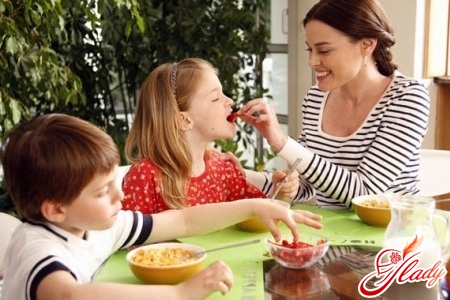
Medicinal treatment of food allergy
Of course, parents certainly ask the doctorthe question of what medications are used to treat food allergies. It is very difficult to give a definite answer: everything depends on the individual characteristics of the child's body. The medications that will help one child may be ineffective for another. In any case, any antihistamines should be selected by an allergist. The main task of parents is to ensure that the child receives medications on time and in full. Very often, the very concept of "antihistamine" greatly frightens parents who have heard that various side effects are possible. However, these fears are unfounded - the modern generation of antiallergic drugs is completely devoid of the shortcomings of their predecessors. In addition to pharmacological drugs, doctors often resort to homeopathic drugs to treat food allergies. They are also selected taking into account many individual characteristics of the child's body: weight, age, course of the allergic reaction, the presence of concomitant diseases. We must not forget the fact that all allergic reactions are directly related to the state of the child's gastrointestinal tract. Therefore, in almost all cases, complex treatment of allergies includes drugs aimed at normalizing the gastrointestinal tract. In particular, if a child suffers from dysbacteriosis, it is necessary to normalize the state of the microflora as quickly as possible. Treatment of food allergies is a systematic and lengthy process. Therefore, be prepared for the fact that it may not go very smoothly, and sometimes breakdowns are possible. If a child has eaten a particular prohibited product, an acute attack of food allergy may develop. In this case, parents should take emergency measures:
- Absorbent The child needs as quickly as possiblegive an absorbent, for example, "enteros-gel" or activated carbon. The absorbent is given at the rate of one tablet of activated carbon or one teaspoon of gel for every ten kilograms of the child's weight.
- Cleansing enema Immediately after the onsetallergic reaction, give the child a cleansing enema. Prepare the following solution: in one liter of water, carefully dissolve one tablespoon of salt and a third of a teaspoon of soda. Preheat the water to room temperature and spend the enema. The volume of the enema depends on the weight of the child - 0.5 liters of water for every 10 kilograms of space.
- Antihistamines Approximately in half an hourafter the above procedures, the child should be given the antihistamine drug that he usually receives. As already mentioned above, all medications should be prescribed to a child by a doctor. And remember the need to visit a doctor after every attack of food allergy.
Other features of caring for children with allergies
Treatment of food allergies in children does not consist ofonly in following a therapeutic diet and taking pharmacological drugs. It is very important to know and understand the rules for caring for children prone to allergic reactions: Form of drugs Pay attention to the form of release of any drugs that you give to the child. For example, do not use any syrups, as they often contain a large number of flavors and dyes. Hygiene procedures Pay attention to hygiene procedures. Firstly, the water temperature should not be too high, and the duration of the bath should not exceed 15 minutes. Only special hypoallergenic cosmetics for children can be used to wash the child. Pets It has already been said above that children suffering from food allergies are susceptible to various other types of allergies. Therefore, it is necessary to refuse to keep pets. And remember that even dry fish food can cause an allergy. Food allergies are an extremely unpleasant phenomenon. However, timely treatment, proper care of the child and qualified assistance will help to cope with this problem. We recommend reading:






